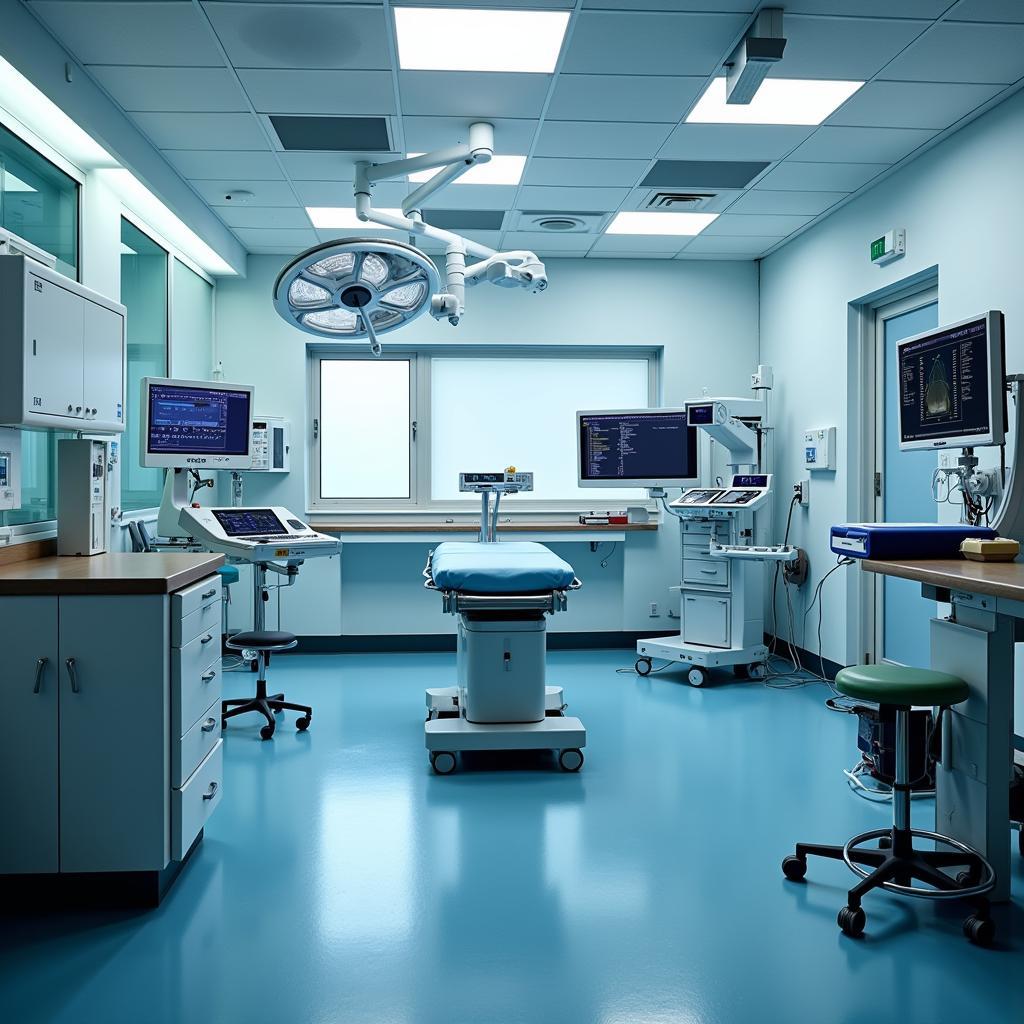Micro hospitals are a relatively new healthcare model providing essential medical services in a smaller, more accessible setting. They bridge the gap between urgent care clinics and larger, traditional hospitals, offering a more convenient and cost-effective option for patients with non-life-threatening conditions. They typically offer a range of services, including emergency care, inpatient and outpatient surgery, diagnostic imaging, and laboratory testing. Understanding the unique features and benefits of micro hospitals can be valuable for both patients and healthcare professionals.
What sets micro hospitals apart is their size and focus on efficiency. Unlike massive medical centers, they operate with a smaller footprint, often strategically located within communities for easy access. This localized approach reduces travel time for patients and allows for more personalized care. For patients seeking immediate medical attention for conditions that are not immediately life-threatening, they can be an excellent alternative to long waits in a busy emergency room. Micro hospitals also frequently feature shorter wait times and a more intimate environment than larger facilities.
The Key Features of a Micro Hospital
One of the key defining features of a micro hospital is its ability to provide inpatient care. Unlike urgent care clinics which primarily focus on outpatient services, micro hospitals are equipped with a limited number of inpatient beds, typically ranging from 8 to 20. This enables patients requiring observation or short-term admission to receive comprehensive care in a comfortable setting without the need to transfer to a larger hospital. They are especially useful for patients who have completed a surgical procedure and require post-operative care or those with manageable conditions that necessitate monitoring.
Another important aspect of micro hospitals is their focus on advanced technology and specialized services. While they may not offer the full range of services available at larger hospitals, they often specialize in particular areas such as orthopedics, cardiology, or women’s health. This allows them to attract skilled physicians and provide high-quality care in these specific fields. Many micro hospitals are also equipped with advanced diagnostic imaging equipment, including CT scanners and MRI machines, enabling them to offer a wide array of diagnostic services on-site. See our article on the micro hospital definition for a more detailed explanation.
How Micro Hospitals Benefit Patients
Micro hospitals offer several advantages for patients, including increased convenience, reduced costs, and a more personalized experience. Their smaller size often translates to a more intimate and less overwhelming atmosphere, enhancing the overall patient experience. By being strategically located within communities, they reduce travel time for patients, especially those living in rural or underserved areas.
 Micro Hospital Waiting Area
Micro Hospital Waiting Area
Furthermore, micro hospitals can often provide care at a lower cost compared to larger hospitals. This is partly due to their smaller overhead and more streamlined operations. They are also more likely to be in-network with a wider range of insurance providers, making them a more accessible option for many patients. For more information, you can read about the Valley Baptist Micro Hospital Weslaco.
The Role of Micro Hospitals in the Healthcare Landscape
Micro hospitals are playing an increasingly important role in the evolving healthcare landscape. They are particularly beneficial for patients requiring immediate care for non-life-threatening conditions, providing an alternative to overcrowded emergency rooms. They also serve as valuable access points for patients in underserved communities, offering essential medical services closer to home. As healthcare costs continue to rise, micro hospitals represent a more cost-effective model of care, making healthcare more accessible and affordable.
 Micro Hospital Operating Room
Micro Hospital Operating Room
“Micro hospitals are filling a critical gap in our healthcare system,” says Dr. Emily Carter, a leading healthcare consultant. “They provide convenient and affordable access to high-quality care, especially for those in underserved communities.” Another expert, Dr. Michael Chen, a practicing physician in a micro hospital setting, adds, “The personalized care we can offer in a micro hospital environment allows us to build stronger relationships with our patients and provide more tailored treatment plans.” Learn more about recent events affecting hospitals such as the Microsoft hospital outage.
The Future of Micro Hospitals
The micro hospital model is expected to continue to grow and evolve in the coming years. As technology advances, these facilities will be able to offer an even wider range of services and specialties. Telemedicine and remote monitoring capabilities are also likely to become more integrated into micro hospital operations, expanding their reach and further enhancing patient care. This can be particularly important during situations like the discussed Microsoft outage and hospitals.
In conclusion, micro hospitals are transforming the healthcare landscape by offering a more convenient, cost-effective, and personalized approach to medical care. They provide essential services in smaller, more accessible settings, bridging the gap between urgent care and traditional hospitals. As the demand for accessible and affordable healthcare continues to grow, micro hospitals are poised to play an increasingly vital role in meeting the needs of patients and communities. For a deeper understanding, see our article on Microsoft outage hospital.
FAQ
-
What services are typically offered at a micro hospital? Micro hospitals typically offer emergency care, inpatient and outpatient surgery, diagnostic imaging, and laboratory testing.
-
How many beds does a micro hospital usually have? Micro hospitals generally have between 8 and 20 inpatient beds.
-
Are micro hospitals more affordable than traditional hospitals? Often, yes, due to their smaller size and more streamlined operations.
-
What are the benefits of choosing a micro hospital? Benefits include increased convenience, reduced costs, and a more personalized experience.
-
What is the future of micro hospitals? Micro hospitals are expected to continue to grow, integrating more technology and expanding their range of services.
When you need healthcare assistance, please contact us at Phone Number: 02437655121, Email: [email protected] Or visit our address: No. 298 Cau Dien Street, Minh Khai, Bac Tu Liem, Hanoi, Vietnam. We have a 24/7 customer service team.